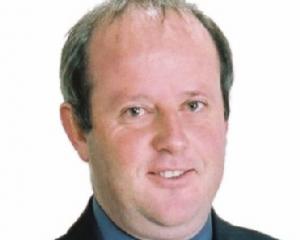Tax is one of the certainties of life, but recent suggestions from Government ministers has caused some people to wonder what will be next.
We have already seen one backdown this week - on taxing work-provided car parks - and now it seems the idea of a tax on work-provided computers, cellphones and the like is destined to go the same way.
The Government was stung when New Zealand's top advertising agencies joined business groups and the Unite union in the campaign against the proposal to tax employee car parks.
The FBT Action Group, formed by industry and business groups, said a tax change proposed late last year - which would have extended fringe benefit tax to all employer-provided car parks in Auckland and Wellington's CBDs - would have driven up costs by 50%.
The group also argued there were safety issues. Unite's Matt McCarten warned the tax would see nightshift employees lose their work car parks, forcing them to walk to cars parked away from their workplaces ''at unsafe hours in some of the most unsafe parts of the city, risking assault and rape''.
Ever the pragmatist, Prime Minister John Key will have realised that not only would he have lost support of some traditional business supporters over the matter, but having issues of women's safety on his conscience would have played into the hands of his opponents.
The idea of taxing work-related mobile devices and computers will surely end up suffering the same fate. Employees required to do their jobs out of the office are often provided with tools with which to complete administration tasks, such as forwarding orders from a rural area into a central city head office.
Suggestions made recently implied some employees were being offered phones and computers worth less than $3000 because fringe benefit tax does not apply. On the issue of fairness, the IRD wants to ensure people pay their fair share of tax.
But on the issue of practicality, it sometimes costs more in the collection, and with the wrong message sent, than the money is worth.
Another proposal that seems certain to change - because it is impractical - is that of taxing accommodation costs paid by workers living away from home for extended periods of time.
With the rebuilding of Christchurch firmly in the minds of the nation, particularly given the Government promised so much at the 2011 election, taxing workers from, say, Dunedin or Auckland to work there from Monday to Friday is ludicrous.
First, employers already having trouble finding skilled labour will find the task even more difficult.
Workers, already living away from home, will be perplexed at how a Government pushing for a rebuild of the South Island's largest centre can literally turn people away. The accommodation tax will be softened.
Between now and June, a further 10 to 15 policies will be released by IRD - some of them new, some of them revamped in the hope of a better public reception. The mixed used of assets, such as holiday homes and boats, will be part of the legislative revamp.
Whether a swimming pool can be claimed as a fire-fighting reservoir during a drought is a moot point for IRD to decide.
There is no doubt New Zealand is fiscally challenged and the cost of the drought, now put anywhere between $1 billion and $2 billion, on the economy will be playing on the minds of Finance Minister Bill English and Revenue Minister Peter Dunne.
The IRD has a mandate to collect as much tax as possible and therein lies the difficulty.
After some major wins on tax avoidance in the courts, the department has the wind at its back. The Australian Tax Office in the past also recorded wins in the courts and was encouraged to push its agenda further.
It eventually, though, found itself offside with the courts, which started siding with taxpayers, leaving the tax office to lick its wounds as the pendulum swung against it and towards the taxpayer. IRD and Revenue Minister Peter Dunne are getting into similar territory.
Too many backdowns on small matters may lead to larger climbdowns, eroding the faith New Zealanders have in the tax system. Consistency and constancy are the key.



